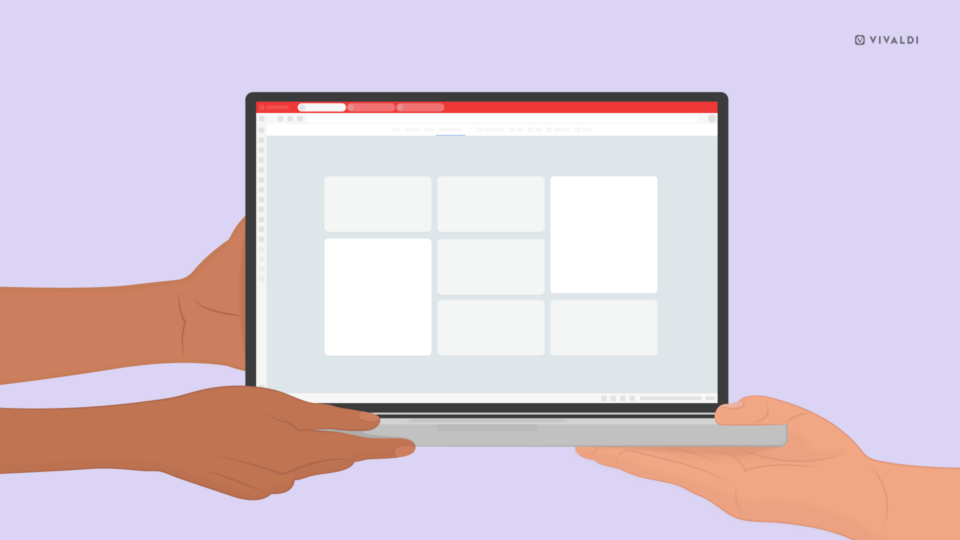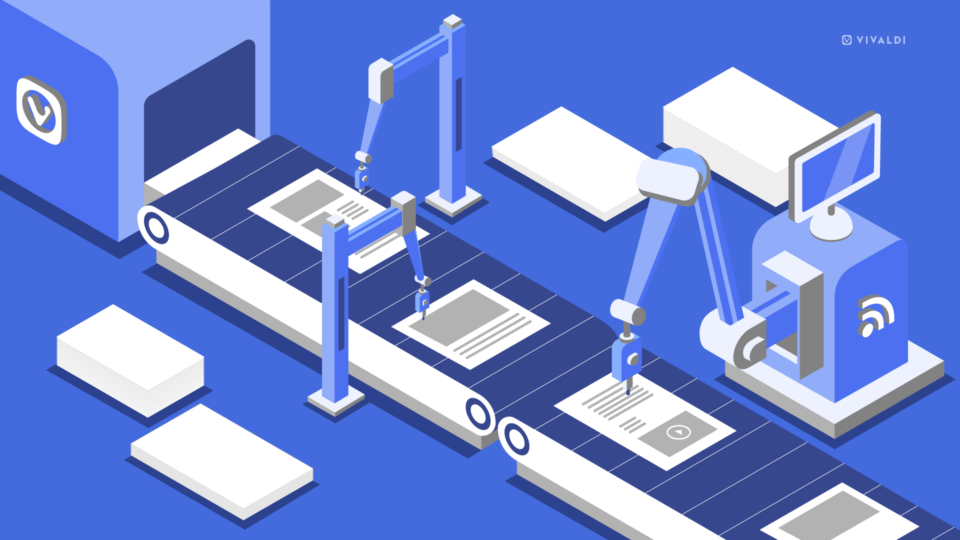Read this article in Español.
Ever since we launched Vivaldi browser, we’ve been vocal proponents of privacy – campaigning against tracking and data collection.
But in the time we’ve been building Vivaldi, the number of web trackers has skyrocketed and today there are billions of trackers out there.
While we continue to campaign against tracking and data collection, the sheer scale of tracking made it imperative for us to create a more immediate solution to protect Vivaldi users.
It has taken us several months of development but I am very happy to announce that Vivaldi now has a built-in Tracker blocker which will prevent you from being followed around the web by the ubiquitous web trackers.
DuckDuckGo and Vivaldi: A united effort
The way Vivaldi blocks trackers is by relying on a list of well-known tracker URLs and stopping requests to those URLs before they are sent.
When it comes to the choice of lists, we are proud to be partnering with DuckDuckGo and incorporate DuckDuckGo’s Tracker Radar-powered blocklist. This is the same list used in the DuckDuckGo Privacy Essentials extension and Privacy Browser mobile app. It blocks most of the known trackers out there.
The Tracker Radar
The Tracker Radar continually crawls the web looking for trackers on major websites so that you can browse without creepy third-party trackers in the background.
This approach of blocking connections to trackers outright goes beyond what many major browsers are doing – merely stopping trackers from setting cookies and limiting their access to browser resources after connecting to them. The connection itself leaves you open to many types of tracking (e.g., by exposing your IP address and recording your browsing history in the process), and should be blocked outright to be really protected.
DuckDuckGo’s Daniel Davis explains this really well:
Rather than being just a blocklist, DuckDuckGo Tracker Radar is actually a data set that can be used to compile powerful blocklists, such as that used in this new Vivaldi release, as well as form a foundation for research of trackers to discover new techniques and promote broader understanding. The data set is continually updated by crawling top websites looking for various factors such as usage of resources in a third-party context, cookie-setting behavior, usage of browser APIs, and the likelihood of those APIs being used to identify users (fingerprinting). We’ve made the Tracker Radar data set and the code that generates it openly available, and we’re delighted Vivaldi is using this technology to provide effective tracker protection for its users.
Daniel Davis, Communications Manager, DuckDuckGo
The tech behind the feature
In its general design, Tracker blocker is similar to many content blockers out there. It features a content-blocking engine that manages the various parts of the process used to determine what should be blocked or not.
First, it fetches the content from various sources, usually over the network. Each file is then parsed into an internal list of rules which each describes what should or shouldn’t be blocked. The engine also makes sure to obtain a fresh version of the source when its expiration time has come. From there, the rules obtained from all sources are indexed, making sure we can find the relevant rules quickly. Finally, when a URL is requested, we use the relevant rules to determine if it should be allowed or not.
When it came to deciding which type of sources should be supported, I went with our usual philosophy of providing choice. While the DuckDuckGo Tracker Radar-powered blocklist works perfectly, there are many people out there who already trust one EasyList format list or another, and I included that option too.
The development of Tracker blocker will continue and I hope to improve the support for the current source formats and maybe add support for other types of sources, such as host lists. One important item in the pipeline is implementing support for WebRTC blocking, which requires a separate implementation from the rest.
Finally, since Tracker blocker had to work both on desktop and Android, it was implemented in C++. Because of this, the implementation will be part of the source packages that we release and you will be able to verify that it protects your privacy in the way we claim.
A tracker-free future
You can find out more about how Vivaldi’s Tracker blocker works on our help pages.
One thing you might notice is that it blocks some ads, more specifically the tracking type of ads. This is unavoidable as they use the same technology.
I hope that the new feature will serve you well and help you browse with more privacy. We will keep improving the feature over time and add more privacy-protecting measures as we go.
As always, I look forward to your feedback.
And of course, we continue to campaign for a long term solution to the problem of tracking and data collection.


